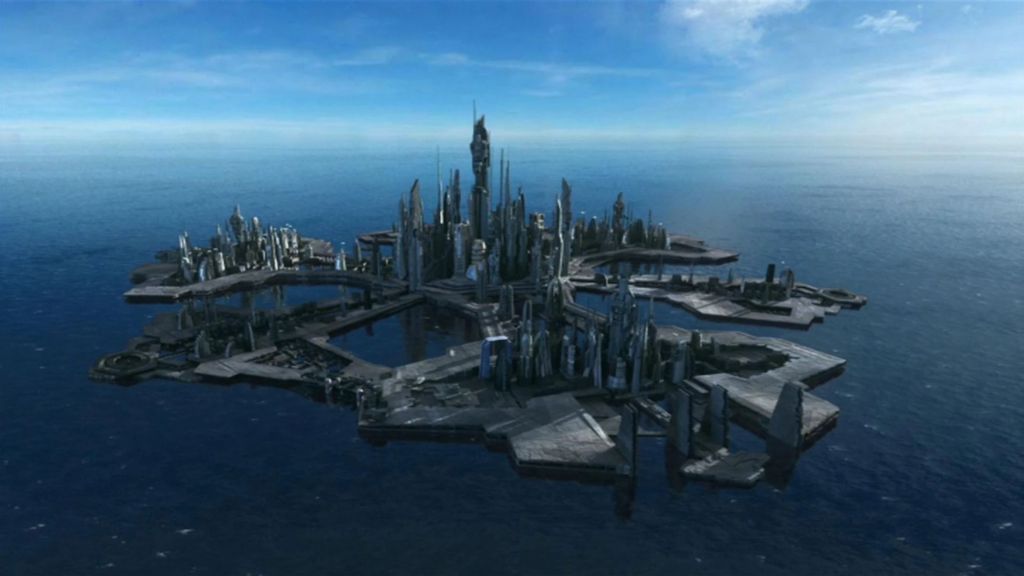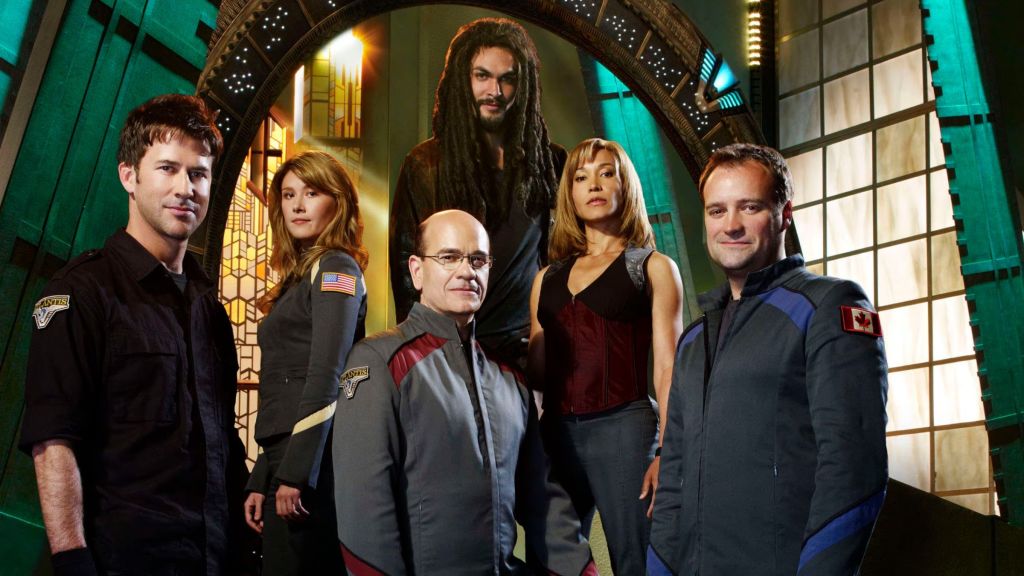
It’s hard to believe that Stargate: Atlantis began airing over 20 years ago, yet here we are. This fantastic sci-fi series is but part of a larger whole, spinning out of another genre classic, Stargate SG-1 (itself a spinoff of the 1994 movie, Stargate). Despite this connectivity, Atlantis is surprisingly approachable to new fans, as it introduces a (mostly) new cast, new adventures, and a new galaxy. The series found that perfect balance between sci-fi and drama, introducing high stakes, scientific expeditions, and military personnel to keep the story going strong. All these years later, we’re still struck by how well the series holds up, and yes, it is absolutely worth binge-watching again.
Stargate: Atlantis originally aired on the Sci-Fi Channel and The Movie Network, starting in 2004. The series features several familiar faces, including Joe Flanigan (John Sheppard), David Hewlett (Dr. Rodney McKay), Jason Momoa (Ronon Dex), Jewel Staite (Dr. Jennifer Keller), and Paul McGillion (Dr. Carson Beckett). Mind you, the series ran for long enough that the cast wasn’t always present simultaneously.
The Core of Stargate: Atlantis

Stargate: Atlantis bounces off from the story introduced in SG-1, with a select cast of characters going through the Stargate (think of a wormhole/portal) without knowing where it will take them. In other words, the story literally begins with the main cast cutting themselves off from the rest of the universe. When they walked through the Stargate, they found themselves in the Pegasus Galaxy – and the lost city of Atlantis. Yes, the lost city didn’t sink under Earth’s seas but instead went to another galaxy altogether.
From there, the stakes rise quickly as our newly isolated team finds a new antagonist with dangerous capabilities. The wraith is an antagonist new to Atlantis, so viewers don’t need to watch all of SG-1 to appreciate the threat. These wraiths are basically parasitic beings who feed on humans, and it’s just as bad as it sounds. That threat still holds up decades later.
As the people responsible for triggering this new wave of wraith attacks, the Atlantis crew find themselves cut off from Earth and fighting a battle on many fronts. Likewise, they feel responsible for putting the other humans in this galaxy at risk. It’s a situation that reliably escalates with each passing season.
[RELATED: 7 SYFY Channel Original TV Shows Still Worth Watching]
Stargate: Atlantis Is Still Fascinating to Watch

The adventures of Stargate: Atlantis are fascinating and compelling, largely because they’re a human-driven story. The leading cast is balanced and compelling, including a determined hero, a brilliant (but neurotic) scientist, talented fighters, caring doctors, motivated leaders, and more. Finally, characters such as Teyla and Ronon add a cultural perspective, as they originate from this galaxy and are more aware of local threats, politics, and customs than the rest of the Atlantis crew.
Another reason Stargate: Atlantis works is the balance between sci-fi, action, and humor. While characters like Teyla and Ronon often have more serious roles in their stories, other characters like Rodney can provide comedic relief as needed. This helps to relieve tensions and lighten the mood, reminding viewers of the world these heroes are fighting for. Meanwhile, the series isn’t afraid to get dark or even explore the realm of horror or heartbreak, depending on what the occasion calls for.
Finally, there’s the obvious—Atlantis! But in space. It’s a unique and mind-blowing concept with endless opportunities for exploration. The city itself offers several unique stories and arcs, which the show uses to great effect. And all of that can happen without the crew ever leaving their new base (which they inevitably do). Once the crew begins leaving Atlantis, they find a new (and significant) threat and dozens of smaller adventures, ranging from multi-episode arcs to more of a freak-of-the-week style format.
[RELATED: All 10 Seasons of Stargate SG-1 Coming to Netflix]
Political and Social Complexities of Space Travel

If there’s one thing the Stargate: Atlantis crew helps viewers learn, it’s that humans come in all kinds. They may have discovered a whole galaxy of inhabited planets, but no two cultures act alike. These planets range from a planet run by kids to a militaristic planet with dangerous goals. Likewise, there are scientific cultures focused on medicine and others that find creative (and sometimes horrible) ways to deal with the wraith threat. All of this is to say that the societies of Stargate: Atlantis have proven time and time again that they will find new and creative responses to the same threat. There’s something inspiring about that, even while we don’t agree with every method used or considered.
Finally, it wouldn’t be fair not to acknowledge the hard work done by SG-1. Without SG-1, Stargate: Atlantis never could have existed. On the bright side, the spin-off show did get to pay its respects a time or two, bringing in the original cast here and there. For example, Rodney McKay was a minor character in SG-1, but his story took a new turn when he joined the Atlantis crew. Likewise, Carter originated from SG-1, and she later stepped into a larger role in Atlantis (after SG-1 had ended). Things like this help to remind us that the universes are connected, even though they often don’t feel that way.
Long story short, Stargate: Atlantis may have concluded years ago, but it is still worth sitting down and watching. Even viewers who have never watched the original series can find something to appreciate as long as they enjoy sci-fi or military adventures.
Stargate: Atlantis is available to stream on Hulu.
The post Over 20 Years Later, This Sci-fi Series Is Still Worth Rewatching appeared first on ComicBook.com.

